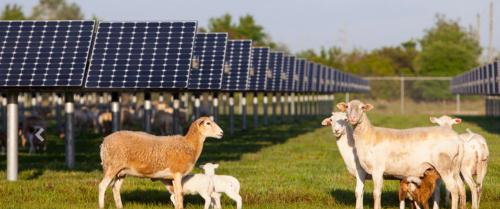People feel motivated to install solar panels for a variety of reasons. They want to break free from utility companies. They want to save money on their utility bill. Some people are looking to protect themselves if the worst-case scenario happens and the electricity goes out for weeks or months at a time.

Protecting the environment is a compelling reason for many to get solar panels. They don’t want to contribute to generating electricity from dirty sources, such as natural gas, coal, and nuclear. They want to contribute to a cleaner and sustainable future.
What Is Solar Energy?
Solar energy is energy from the sun that is transformed into electrical or thermal energy. Solar energy is abundant, clean, and renewable. Energy from the sun is currently being used to create electricity, heat water, and make residential and industrial environments more comfortable.
How Does Solar Energy Work?
Solar energy is harnessed in three ways.
- Photovoltaics
- Concentrating solar power
- Solar heating and cooling
Photovoltaics create electricity from sunlight. Both concentrated solar power and solar heating and cooling use the heat generated by the sun to heat a space or heat water. It can also run traditional electric turbines.
How Is Solar Energy Good for the Environment?
Besides thinking about the cost of solar for your home, you are likely thinking about the environmental benefits. Using solar energy reduces CO2 emissions and greenhouse gas. A modestly sized solar panel system can reduce a home’s energy use by 80 percent. Larger units may come close to 100 percent. At these levels, the environmental impact is notable. Over two decades, a home that consumes 13,000 kWh of electricity a year and that has a solar system that produces 80 percent of the home’s energy requirements will lower CO2 emissions to the equivalent of 150,000 pounds of coal burned.
Solar energy minimizes water pollution. Manufacturing, including the manufacturing of solar panels, requires some water. However, the amount of water needed to create solar panels pales when compared to the amount of water needed to produce other forms of electricity.
Traditional sources of electricity, such as natural gas and coal, require a ton of electricity for cooling. Solar energy does not put a strain on local water supplies. There is minimal risk of drinking water being contaminated by solar energy.
Solar energy minimizes the strain on natural resources. The world’s population continues to grow. However, the world’s resources continue to shrink. The sun is creating 173,000 TW of solar energy every second. That is over 10,000 times all of the world’s energy use.
If humanity does not pull back from their use of fossil fuels, they are going to reach a point where the damage to the environment is unsustainable. Solar energy provides a renewable, inexhaustible source of energy. It is clean, free, and healthy.
Going solar saves the planet. It is a home improvement investment that has an immediate financial and environmental impact. It will continue to have a measurable environmental impact in the future.
So should you install solar now, or wait? The answer obviously depends, but the arguments in favor of it are simply hard to ignore right now.
Interesting Related Article: “Understanding the Benefits of Solar Energy“

